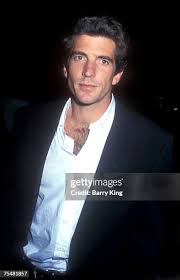
Introduction
John F. Kennedy Jr., the son of the 35th President of the United States, remains a figure of immense intrigue and speculation even decades after his tragic death. His life spanned a multitude of roles: attorney, journalist, and magazine publisher, but he is perhaps best remembered as the charming scion of a storied political dynasty. Understanding JFK Jr.’s legacy is crucial in both American history and current popular culture, as recent events have reignited discussions about his impact and the various conspiracy theories surrounding his fate.
Life and Career of JFK Jr.
Born on November 25, 1960, in Washington D.C., JFK Jr. grew up in the public eye. Following the assassination of his father in 1963, he became a symbol of hope and resilience for many Americans. He pursued a prestigious education, graduating from Brown University and obtaining a law degree from New York University. JFK Jr. entered the public limelight with his magazine “George,” which aimed to blend politics and pop culture, characterized by its innovative approach. He was also involved in philanthropic endeavors and was a licensed pilot.
The Tragic Accident
On July 16, 1999, JFK Jr., along with his wife Carolyn Bessette-Kennedy and her sister Lauren, tragically died when their private plane crashed into the Atlantic Ocean near Martha’s Vineyard. The news sent shockwaves across the nation, sparking a massive search and rescue operation that eventually yielded their remains and the wreckage of their plane. Government investigations concluded that pilot error was the likely cause of the accident, but numerous conspiracy theories have emerged since then.
Ongoing Speculation and Conspiracy Theories
Despite the official account of his death, JFK Jr.’s legacy lives on in a mantle of conspiracy theories. In recent years, some online communities have suggested that he faked his own death and would reappear, most notably in the lead-up to the 2020 election. These theories gained traction during various conspiracy-ridden political narratives. While many scholars and historians dismiss these claims as baseless, they highlight the persistent fascination with JFK Jr. and what he represented.
Conclusion
JFK Jr.’s life and untimely death continue to ignite conversations about legacy, power, and public perception in America. His contributions to journalism and his unique position in American culture make him an enduring figure. Although the conspiracy theories may seem far removed from reality, they point to a broader desire for connection to a past filled with hope and tragedy. As America moves forward, JFK Jr. will undoubtedly remain a topic of discussion, intrigue, and reflection.



